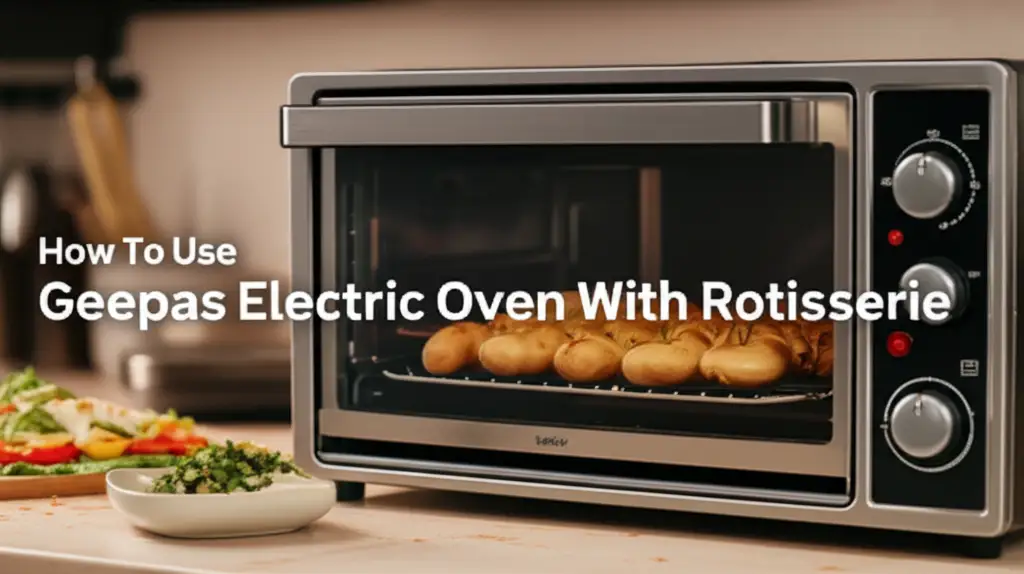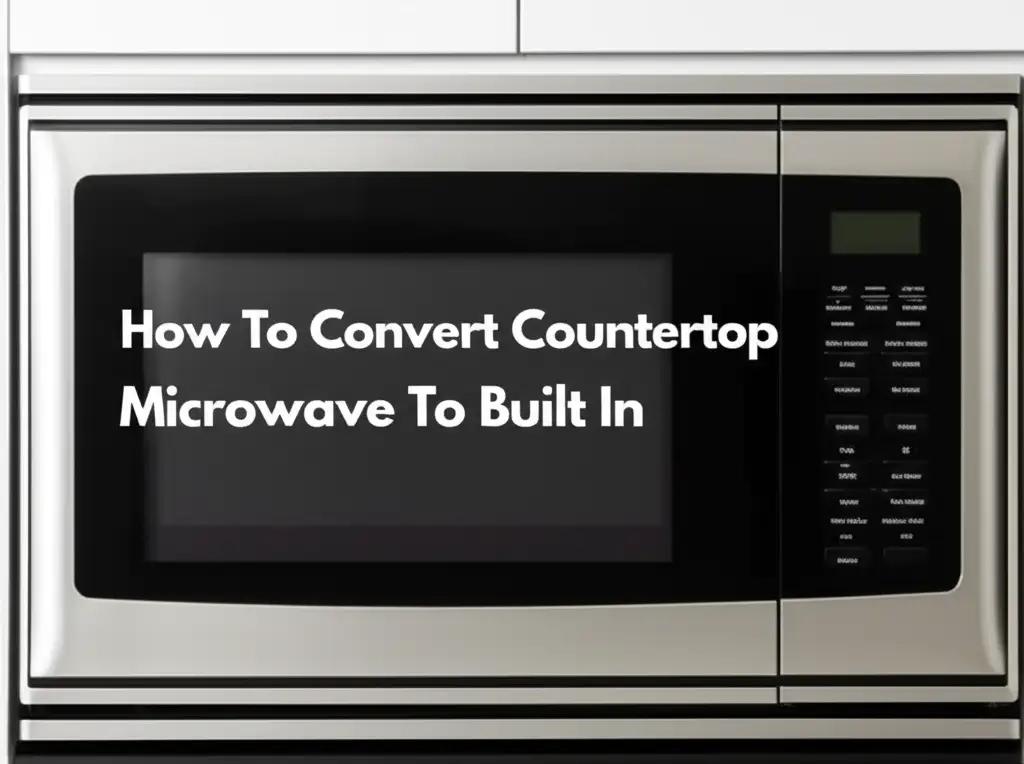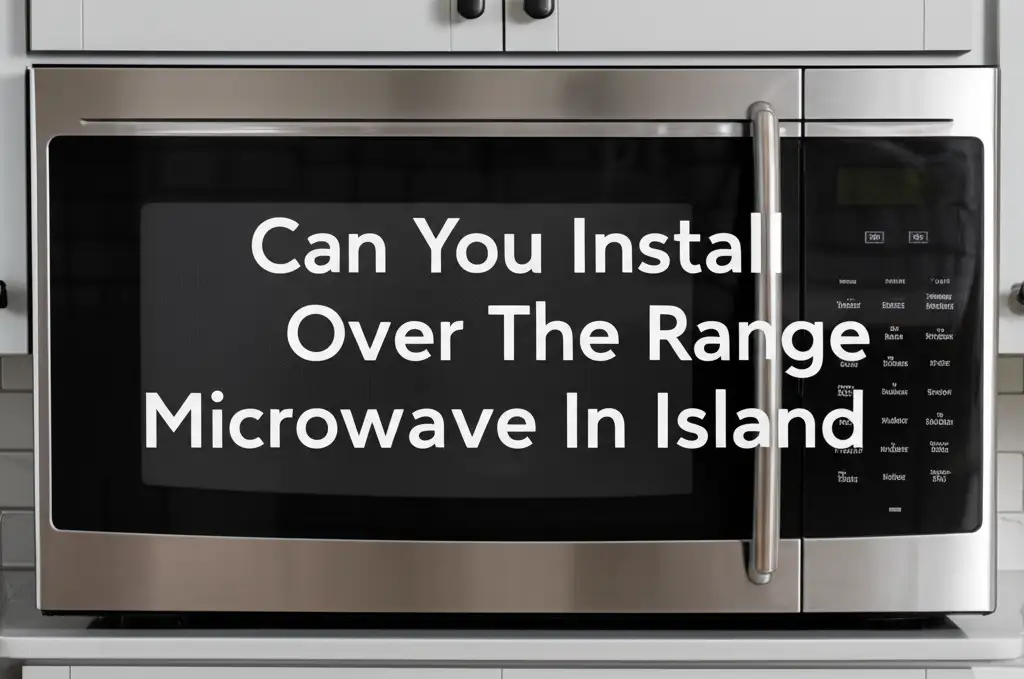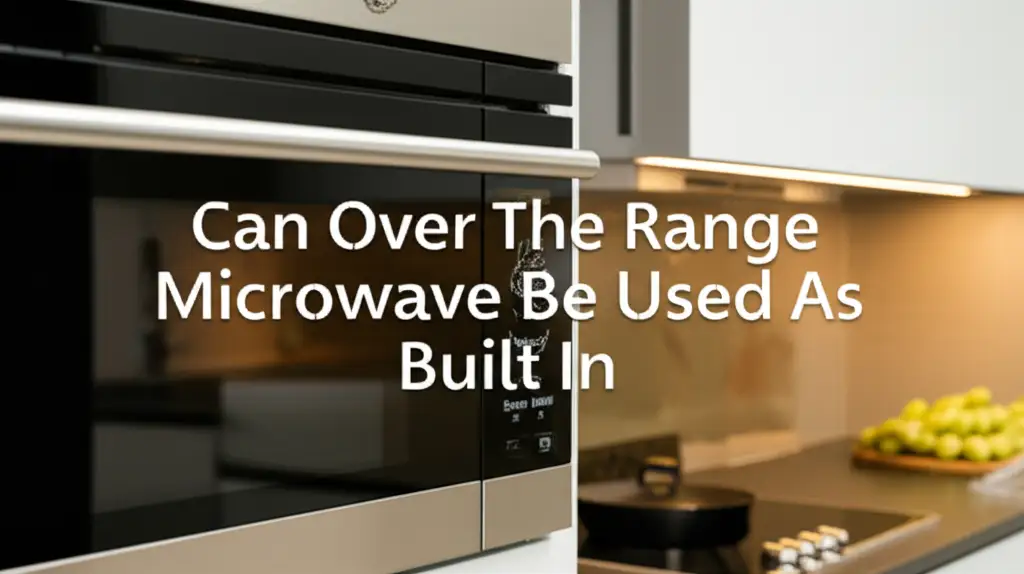· Todd Martin · Kitchen Appliances · 13 min read
Can You Have An Electric Oven And Gas Hob
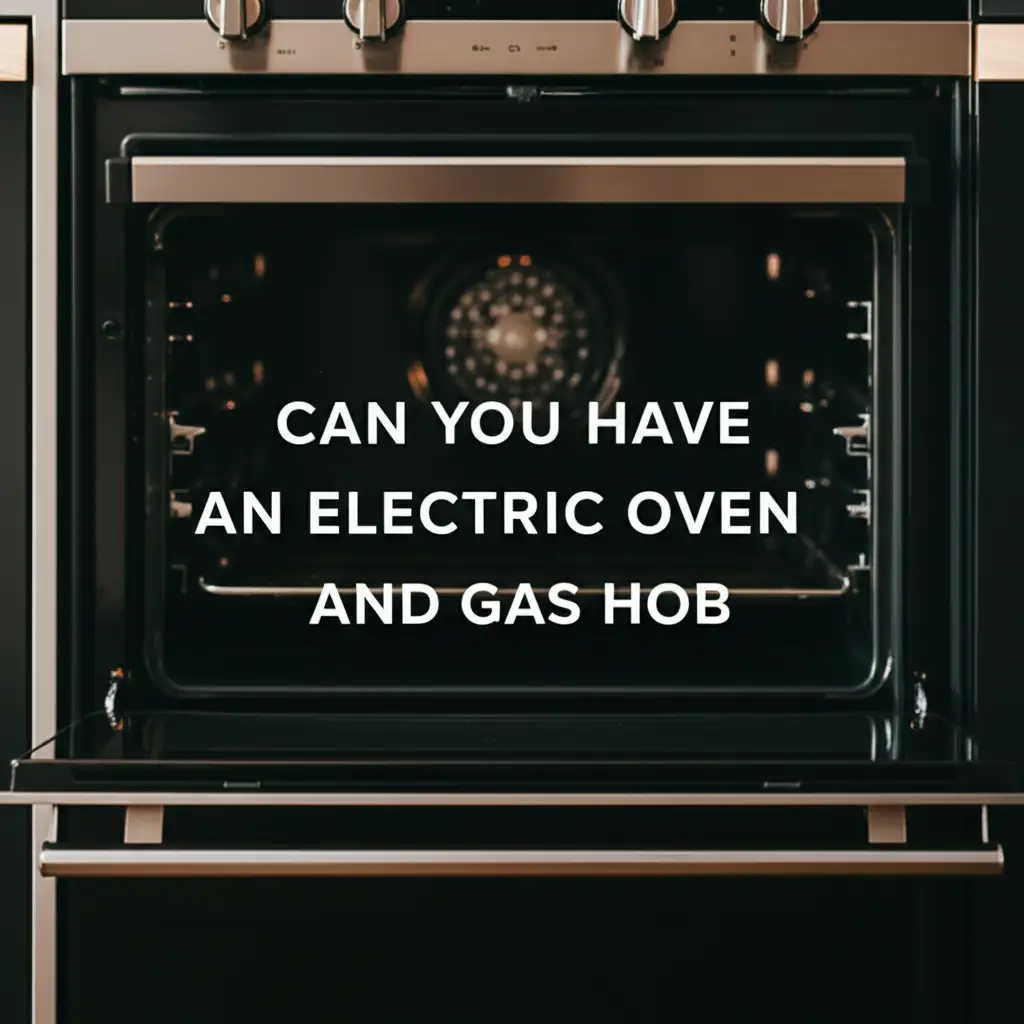
Can You Have An Electric Oven and Gas Hob Together?
Are you planning a kitchen upgrade or building a new home? You might wonder about the best cooking appliance setup. Many people face a common question: can you have an electric oven and gas hob in the same kitchen? It is a popular query because both electric ovens and gas hobs offer distinct advantages. Combining them could give you the ultimate cooking experience. This article explores the possibility and benefits of pairing an electric oven with a gas hob. We will discuss installation needs, safety tips, and how this combination can enhance your kitchen.
Takeaway
- Combine for Versatility: Enjoy precise gas hob control and consistent electric oven heat.
- Professional Installation is Key: Always use qualified electricians and gas engineers.
- Plan Utility Connections: Ensure your kitchen has the right electrical and gas hookups.
- Prioritize Safety: Implement proper ventilation and regular appliance checks.
- Consider Your Cooking Style: This setup suits diverse culinary needs.
Yes, you absolutely can have an electric oven and gas hob in your kitchen. This popular combination allows you to enjoy the precise heat control of a gas hob for stovetop cooking alongside the consistent, even baking of an electric oven. It’s a common and highly functional setup for many home chefs.
The Best of Both Worlds: Why Combine Appliances?
Choosing kitchen appliances involves many decisions. You might have heard about the distinct benefits of electric ovens and gas hobs. An electric oven often provides very even heat. This makes it ideal for baking delicate pastries or roasting large cuts of meat. Gas hobs, on the other hand, offer instant heat and precise flame control. This makes them perfect for searing, stir-frying, or quickly boiling water. When you combine an electric oven and a gas hob, you get the best features from both fuel types. This setup is often called a “dual fuel” arrangement when the oven and hob are integrated into one unit.
Electric ovens are known for their consistent temperature. They heat up evenly from top to bottom. This consistency is crucial for baking results. Many electric ovens also come with features like self-cleaning modes, making maintenance easier. For example, knowing how to clean an electric oven can simplify your kitchen routine. Gas hobs provide an immediate flame. You can see the heat adjust instantly. This offers incredible control for different cooking tasks. Many chefs prefer gas for its responsiveness. If you are curious about deep cleaning for gas appliances, learning how to clean a gas oven can be helpful, even for just the hob. This dual setup gives you precision for your stovetop cooking and reliability for your oven needs. It allows you to tackle a wider range of recipes with confidence.
Understanding Installation Requirements for Mixed Appliances
Installing an electric oven and gas hob separately, or as a combined dual fuel range, requires specific utility connections. You must understand these requirements before making a purchase. An electric oven needs a dedicated electrical circuit. This circuit typically runs from your main electrical panel. It must handle the high power draw of the oven safely. You can check how to know if you have an electric oven by looking at its power cord and circuit breaker. Most standard wall outlets cannot supply enough power for an oven.
A gas hob requires a natural gas line connection. This line connects from your home’s main gas supply. A qualified gas engineer must install this connection. They ensure it is leak-free and meets all safety standards. Gas hobs also need proper ventilation. A range hood above the hob is essential to remove combustion byproducts and cooking fumes. It is wise to consider your kitchen layout carefully. Ensure there is enough space for both appliances and their respective utility lines. Knowing how to know if your gas oven is working can also help you understand the gas supply requirements. Always consult with certified professionals for installation. This ensures compliance with local building codes and safety regulations. Incorrect installation can lead to dangerous situations.
Safety First: Key Considerations for Dual Fuel Setups
Safety is paramount when combining an electric oven and a gas hob in your kitchen. Gas appliances carry inherent risks if not handled correctly. Gas leaks are a serious concern. They can lead to fires or carbon monoxide poisoning. Always ensure a qualified gas engineer installs your gas hob. They will perform leak checks and ensure proper ventilation. Installing a carbon monoxide detector in your kitchen is a smart safety measure. This device alerts you to the presence of this odorless, colorless gas.
Electrical safety is equally important for your electric oven. The oven must connect to a dedicated circuit. This prevents overloading your home’s electrical system. Poor wiring can cause electrical fires. An experienced electrician should perform all electrical hookups. Regular maintenance checks are vital for both appliances. Periodically check gas lines for any signs of wear or damage. For electric ovens, look for issues like burning smells or tripped circuit breakers. If you notice strange behavior, like why your gas oven goes out when you close the door, call a professional immediately. Never try to fix gas or high-voltage electrical issues yourself. It is also important to consider if you can leave an electric oven on when not home for extended periods. Generally, this is safe if the oven is in good condition, but it’s always best practice to turn off appliances when leaving your home. Proper ventilation is critical for air quality. A good range hood removes moisture, grease, and combustion gases. This creates a safer and more pleasant cooking environment.
Common Configurations: Integrated vs. Freestanding
When you choose to have an electric oven and gas hob, you have a few configuration options. The most common setup is an integrated “dual fuel” range. This appliance combines a gas hob on top with an electric oven below. It fits into a standard cooker space in your kitchen. This type of range gives a cohesive look. It provides the convenience of having both cooking functions in one unit. Many people prefer this option for its space-saving design and clean lines. The installation involves connecting both the gas line and the dedicated electrical supply to the single appliance.
Another popular configuration involves separate appliances. You can install a built-in electric oven into a cabinet at eye level. Then, you can place a gas hob into the countertop above a different cabinet. This setup offers more flexibility in kitchen design. It can improve ergonomics because you do not have to bend down to access the oven. This choice also allows you to select specific models from different brands. You might choose a high-end electric oven and a professional-grade gas hob separately. For a freestanding kitchen, you could have a separate electric oven and a separate gas hob unit if space permits. This is less common for modern built-in kitchens. However, it offers maximum flexibility in appliance placement. Consider your kitchen layout, space availability, and aesthetic preferences when choosing the best configuration for your home. Each option has its unique benefits and design implications for your kitchen space.
Cost Implications: Budgeting for a Hybrid Kitchen
Understanding the cost implications is crucial when planning for an electric oven and gas hob combination. The initial purchase price of a dual fuel range or separate appliances can vary widely. High-end models with advanced features will naturally cost more. Generally, dual fuel ranges might be slightly more expensive than single-fuel (all-electric or all-gas) equivalents due to the combined technology. However, separate units often give you more flexibility in budgeting. You might opt for a more affordable gas hob and a mid-range electric oven, or vice-versa.
Installation costs are a significant factor. You will need a qualified electrician to connect the electric oven to its dedicated circuit. This might involve installing new wiring or upgrading your electrical panel. Simultaneously, a certified gas engineer must install the gas hob and ensure a safe, leak-free connection to your gas supply. If your kitchen does not already have a gas line or a suitable electrical circuit, these utility upgrades will add to your total cost. Getting multiple quotes from different professionals is always a good idea. Running costs also play a role over time. Gas is often cheaper than electricity for heating. This means your gas hob might be less expensive to run daily compared to an electric hob. However, electricity provides consistent heat for the oven. This could lead to better baking results, potentially saving you from re-doing dishes. Factor in both upfront costs and long-term running expenses when making your decision.
Troubleshooting & Maintenance for Electric Oven & Gas Hob Combos
Even the best appliances need regular care and occasional troubleshooting. For your electric oven, common issues can include uneven heating or slow preheating. If you notice why your electric oven burns the bottom of everything, it might be a calibration issue or a faulty heating element. Sometimes, a simple recalibration can fix temperature inconsistencies. Regular cleaning is also vital. Food spills can bake onto the oven interior, causing smoke and odors. Knowing how to clean an electric stove top is important for the hob surface, even if it’s a gas hob. Always follow the manufacturer’s cleaning instructions.
Gas hobs might experience issues with ignition or weak flames. If a burner clicks but does not light, the igniter might be dirty or wet. Cleaning around the igniter and burner caps can often resolve this. If the flame is weak or uneven, the burner ports might be clogged with food debris. Gently cleaning these ports with a fine wire can restore proper flame distribution. For both appliances, if you hear unusual noises, smell gas, or detect electrical burning smells, turn off the appliance immediately. Then, call a professional technician. Never attempt complex repairs yourself, especially with gas lines or high-voltage electrical components. Regular professional servicing helps identify potential problems early. This extends the lifespan of your appliances. It also maintains peak performance and safety in your kitchen. Adhering to a routine cleaning schedule helps prevent many common issues.
Making the Right Choice: Is This Setup for You?
Deciding on the perfect kitchen setup depends on your personal needs and cooking style. Having an electric oven and gas hob combination offers unique advantages. This hybrid approach gives you the instant, visual control of a gas flame for stovetop cooking. It also provides the consistent, dry heat of an electric oven for baking and roasting. If you are a passionate cook who enjoys both precise simmering and perfect soufflés, this setup might be ideal for you. Consider your daily cooking habits. Do you often use a wok or need to boil water quickly? A gas hob excels at these tasks. Do you bake cakes, roast vegetables, or prepare casseroles that need even, steady heat? An electric oven shines here.
Your kitchen’s existing utility infrastructure also plays a crucial role. Do you already have both gas and electrical lines available in the desired locations? If not, the cost of installing new lines could be a significant factor. Think about your long-term plans for your home. Are you planning a major renovation? This might be the perfect time to add new utility lines if needed. Your budget will also influence your choice. While the initial setup might cost more, the versatility and performance could be worth the investment for your culinary pursuits. Ultimately, the decision comes down to balancing your cooking preferences, practical kitchen considerations, and financial planning. If you value versatility and performance in your cooking appliances, combining an electric oven with a gas hob offers a compelling solution.
FAQ Section
Q1: Is a dual fuel range more expensive than a single-fuel appliance?
Dual fuel ranges often have a higher upfront cost compared to their single-fuel counterparts. This is because they incorporate two distinct heating technologies and require both gas and electrical connections. However, the added versatility and performance benefits often justify the investment for many home cooks. Installation costs can also be higher due to the need for both types of utility hookups.
Q2: Do I need a special electrician for an electric oven and gas hob installation?
Yes, you need qualified professionals for both parts of the installation. A certified electrician must handle the electric oven’s wiring, ensuring it connects to a dedicated circuit. A qualified gas engineer is essential for connecting the gas hob to your home’s gas line safely and according to regulations. Never attempt these installations yourself.
Q3: What are the main benefits of combining an electric oven and a gas hob?
The primary benefit is superior cooking performance and versatility. Gas hobs offer instant heat and precise flame control for stovetop cooking, ideal for tasks like stir-frying or searing. Electric ovens provide consistent, even heat, perfect for baking, roasting, and achieving uniform results, making them excellent for a wide range of dishes.
Q4: Can I install these appliances myself?
No, it is strongly recommended that you do not install an electric oven and gas hob yourself. Electrical work for ovens requires specific wiring and safety knowledge to prevent hazards. Gas line installations are complex and dangerous if done improperly, posing risks of leaks and explosions. Always hire certified electricians and gas engineers for your safety.
Q5: Are there any specific ventilation requirements for this combination?
Yes, proper ventilation is crucial, especially for the gas hob. Gas combustion produces byproducts that need to be safely vented. A powerful range hood installed directly above the hob is highly recommended. It helps remove cooking fumes, grease, heat, and any combustion gases, ensuring good air quality and safety in your kitchen.
Q6: How long do electric ovens and gas hobs typically last?
With proper care and maintenance, an electric oven can last 10-15 years. Gas hobs, being simpler in design, often have a similar or even longer lifespan, typically 10-15 years or more. Regular cleaning and professional servicing can significantly extend the life of both appliances. Quality of the appliance also plays a big role in longevity.
Conclusion
Combining an electric oven with a gas hob offers a powerful and versatile cooking solution for your home. It allows you to harness the best attributes of both heating technologies. You gain the precision and responsiveness of a gas flame for stovetop cooking. You also benefit from the consistent, even heat of an electric oven for baking and roasting. This dual-fuel setup is a popular choice for many home cooks seeking optimal performance in their kitchen.
While the “can you have an electric oven and gas hob” question has a clear “yes” answer, proper installation is non-negotiable. Always prioritize safety. Engage qualified electricians and gas engineers for all hookups and modifications. This ensures your kitchen meets all safety standards and operates efficiently. Consider your unique cooking style, kitchen layout, and budget. These factors will guide you in making the best decision for your home. Explore your options and consult with professionals to design a kitchen that perfectly suits your culinary aspirations. With careful planning, you can enjoy the ultimate cooking experience with your combined electric oven and gas hob setup.
- electric oven
- gas hob
- kitchen design
- appliance compatibility
- kitchen renovation


